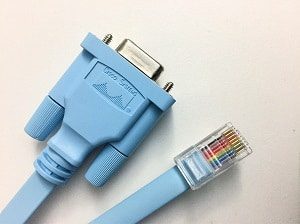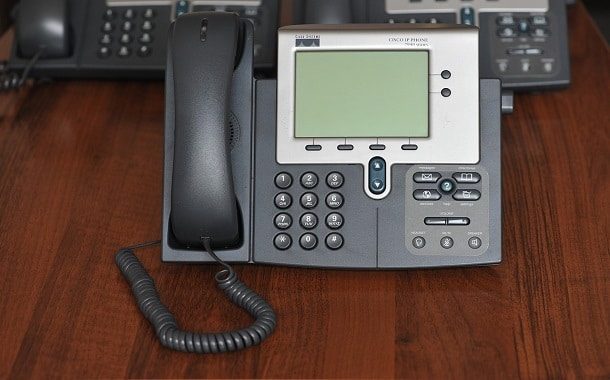How Much Does a Cisco Phone System Cost?
Last Updated on January 12, 2024
Written by CPA Alec Pow | Content Reviewed by ![]() CFA Alexander Popinker
CFA Alexander Popinker
If you run a small business, choosing a phone system is an important decision. You want technology that will provide your team with seamless communications and room to grow. Cisco offers a wide range of business phone and VoIP systems for companies of all sizes. But what is the best Cisco phone system for small business needs?
Highlights of Cisco Phone Systems
- Cisco UC platforms scale from 5 up to 2000 users as you grow
- Capabilities like auto attendants and call analytics optimize productivity
- IP phones range from affordable to high-end executive models
- Total costs for 5 users average $2,500-$5,000 over 3 years
- Cloud options like Webex Calling simplify management
- Allocate IT resources to maintain the system and users
- Choose the right mix of features and phones for your needs
How Much Does a Cisco VoIP Phone System Cost?
As you evaluate options, phone system costs are a very important factor. The cost of a Cisco VoIP Phone System is anywhere between $2,500 and $5,000 for 5 users over 3 years including all hardware, licensing, and support.
Here are average Cisco pricing ranges:
- Phones – $100-$500 per handset
- Licensing – $50-$100 per user
- Installation – $500-$1500 for basic setup
- Professional Services – $125/hr for advanced configurations
- Monthly Fees – $20-$40 per user including service fees
Total Costs Over 3 Years – $2,500-$5,000 for 5 users
Of course, costs scale up with additional features and users. But Cisco offers flexible options to fit SMB budgets.
According to Business.com, Cisco offers a wide selection of desktop phones ranging from $150 for a simple breakroom phone to $600 for a top-of-the-line executive phone
Ongoing costs, including maintenance, service fees, and other things, typically run between $20 and $30 per extension per month.
VoIP PBX Express offers refurbished VoIP systems that provide the same level of services as larger Cisco systems. Prices for standalone Cisco VoIP phone systems start at $6,450 for a small system with 20 phones.
What Factors Should You Consider When Implementing Cisco Phones?
Important considerations when deploying a Cisco’s phone system:
- How many users do you need to support?
- Will you install on-premises or use the cloud?
- What IT resources do you have to manage the system?
- How important are advanced UC features vs just basic calling?
- Do you require video conferencing capabilities?
- How many office locations need to be connected?
- Will you need to integrate with software like Salesforce or Zendesk?
- Do you want wall-mounted desk phones or softphones?
- What level of handsets make sense for your staff roles?
- How quickly will you need to scale up with growth?
Consider both current needs and future plans when selecting Cisco platforms, phones, and features. Get guidance from a Cisco partner to design the optimal solution.
What Are the Main Cisco Platform Options for Small Business?
Cisco offers three primary platforms for SMB phone systems and UC:
Cisco Unified Communications Manager – Cisco’s flagship call platform and IP PBX system. It supports both on-premises and cloud deployment. Offers full telephony features, video, mobility, and integration.
Cisco Business Edition 6000 – Integrated voice, data, video, and fax on a single server. Ideal for companies with up to 1000 users across 42 sites. Supports phones, softphones, contact center tools, and conferencing.
Cisco Webex Calling – Cisco’s 100% cloud-based phone and meeting solution. Supports HD video conferencing. Easy to manage with no equipment to maintain. Fully integrates Webex Teams collaboration. Scales up to 2000 users.
Cisco’s platforms address different business sizes and needs. If you need advanced call routing, special PBX configurations, receptionists, or video calling, Unified CM offers the most options. Webex Calling provides maximum simplicity for startups with basic needs.
What Are the Most Important Features and Tools?
Some of the top features and capabilities Cisco systems deliver for SMBs:
- Auto Attendant – Automated greeting and call routing
- Visual Voicemail ‒ Transcribed voicemails via email
- Call Forwarding ‒ Route calls to any number
- Music on Hold ‒ Customize waiting music
- Call Monitoring – Listen in and whisper to agents
- Call Recording ‒ Review and store call audio
- Call Analytics ‒ Usage reporting and tracking
- Mobile Apps – Make calls on iOS and Android devices
- Softphones – Make calls directly from your laptop
- Video Conferencing – Face-to-face meetings through your phones
- CRM Integrations ‒ Sync phone data with Salesforce, Zendesk, etc.
This represents just a sample of the many features Cisco provides. You get a full-featured system that can meet the needs of any size small business.
What Are the Best Cisco Phone Models for SMBs?
Some of Cisco’s most popular IP phone models for small business include:
- Cisco IP Phone 8800 Series – Ideal entry-level phones with HD voice and color displays
- Cisco IP Phone 7800 Series – Affordable black and white display phones
- Cisco IP Phone 8800 Series – Mid-range phones with WiFi and Bluetooth capabilities
- Cisco IP Phone 8861 – Robust executive model with large color multi-touch screen
- Cisco DX Series – Android-based touchscreen phones for high-end users
Cisco handsets range from basic monochrome display models to advanced color touchscreen phones equipped with WiFi, web access, apps and more. Choose phones aligned with each user’s needs. Mix and match models as you scale.
You might also like our articles about the cost to start a business, the price of fiber optic cabling and telephone poles cost.
What Kind of Support and Maintenance Is Involved?
 Like any IT system, Cisco phone solutions require ongoing management and maintenance:
Like any IT system, Cisco phone solutions require ongoing management and maintenance:
- Licenses must be renewed annually
- Software updates apply regularly with new features and fixes
- Phones may require resets or troubleshooting if issues occur
- New phones must be configured for additional hires
- The system should be monitored for performance and usage
- Changes may be needed if you move offices, add a location, etc.
While Cisco solutions are reliable, they do require IT oversight to optimize performance. Leverage Cisco technical support and seasoned partners to assist.
Final Words
If you invest wisely in a Cisco small business phone system network, it can serve your business communications needs for years to come. Partner with an authorized Cisco reseller for the best guidance and pricing. With the right solution, you can focus on connecting with customers and growing your business.


Leave a Reply
Want to join the discussion?Feel free to contribute!